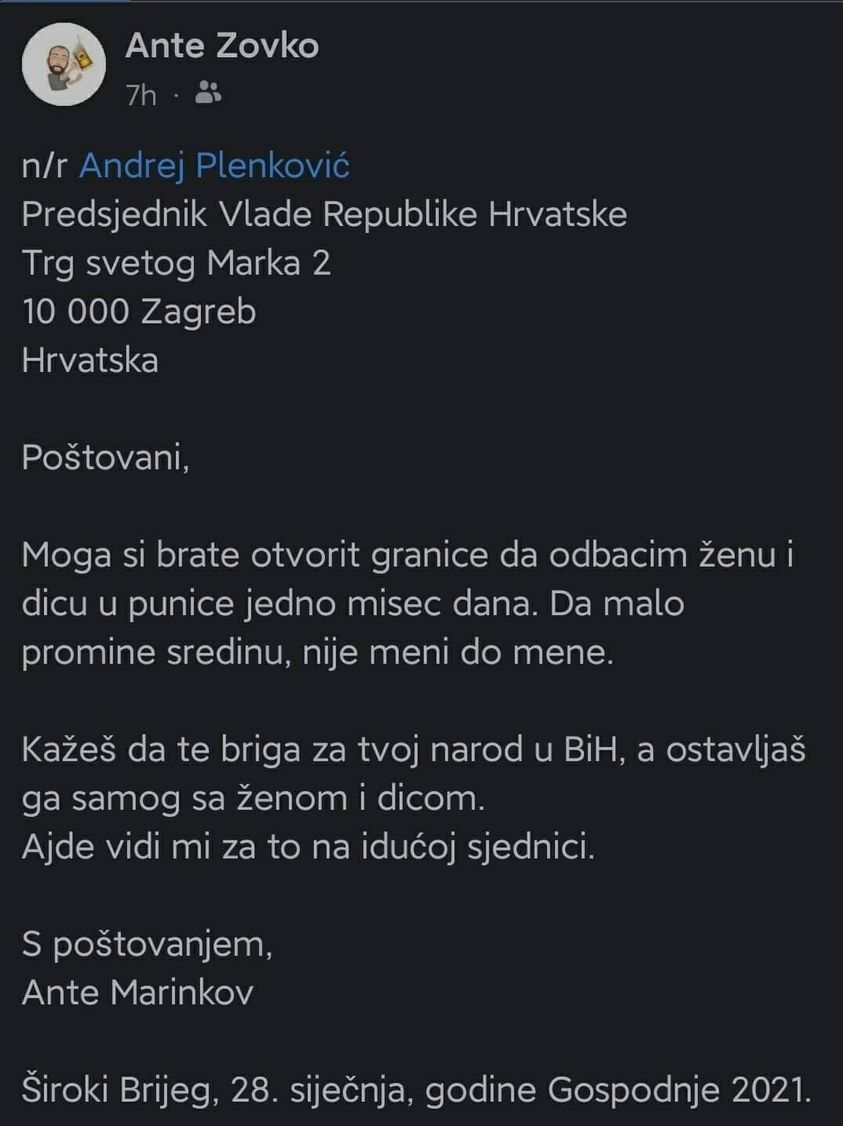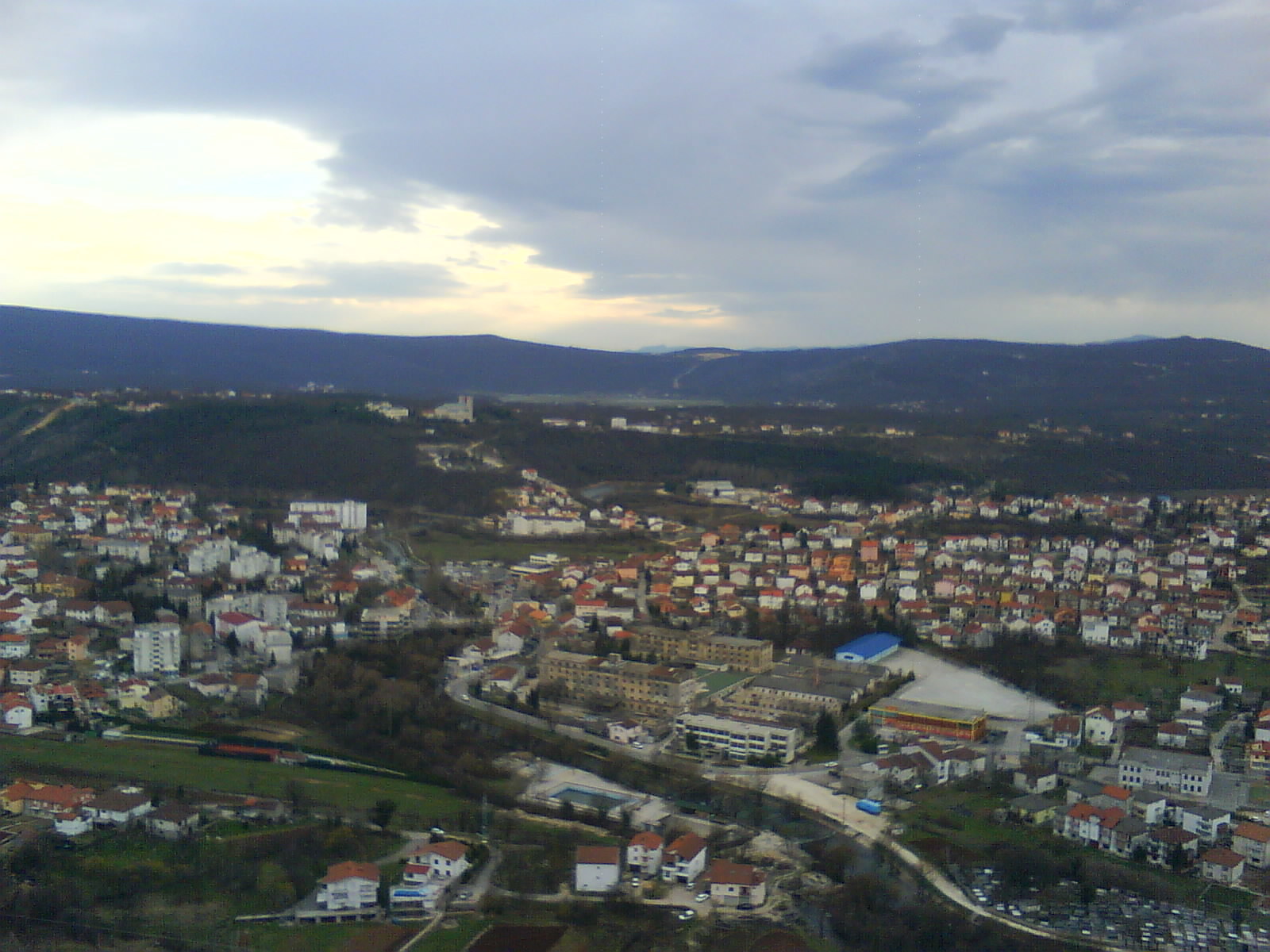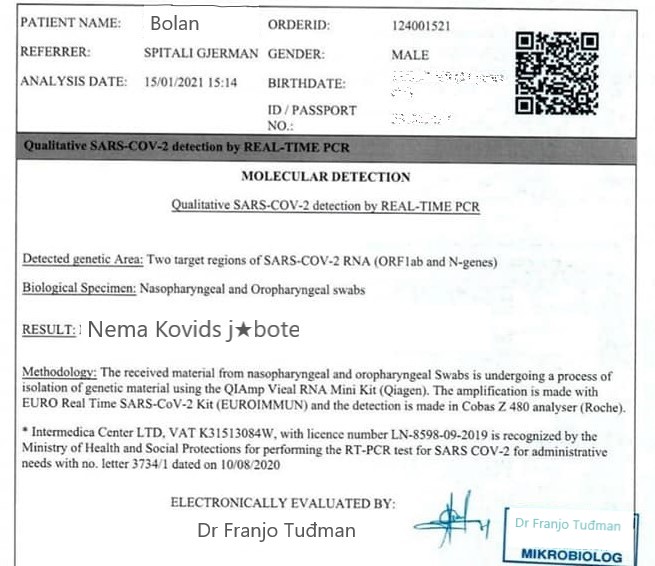Schengen Croatia: New Border Crossing and Motorway to Connect Baranja to EU
December 15, 2022 - Approximately two weeks are left until the moment when Croatia's entry into the Schengen area will become apparent "in the field". Schengen Croatia might significantly benefit the east of the country with the possibility of a new border crossing opening at Knezevo - Sarok in Baranja.
As Glas Slavonije writes, on the first day of next year, border controls towards EU member states will be abolished, and border ramps will go into history. This, however, does not mean that, if necessary, they cannot be closed again.
The stalls remain
The infrastructure at the border crossings, such as the stalls for checking documents, will remain in their current locations, but there will be no police or customs controls there. Kilometre-long queues of heavy trucks that used to form daily on both sides of the Dubosevica - Udvar border crossing will go down in history, at least for now. For the people of Baranja, for example, it will be much easier to go to Mohac and Pecs, which they will be able to reach quickly, just as they go to Osijek, without stopping.
Robert Jankovics, a member of parliament of the Hungarian national minority, who was also involved in the process of "abolishing borders", agrees. "The entry into the Schengen area is one of the great successes of the Government of the Republic of Croatia, achieved thanks to political stability, in which we from the Hungarian community in the Republic of Croatia also helped. The very fact of the entry of the Republic of Croatia into the Schengen area means a lot both for Hungarians in Croatia and for all Slavonians and the people of Baranja, who will no longer have to wait at the border. We will see additional benefits, I hope very soon, with the completion of the full profile of corridor 5C through Croatia, i.e. Baranja," says Jankovics, continuing that all this provides great opportunities for everyone who lives here - to live better.
On a smaller scale, he emphasises that people who migrate every day because they go to work in Hungary will benefit the most. There are few of them for now, which does not mean that there will not be more of them in the future. Speaking about his participation in the whole process, he says that he did what he could and what was within his authority. He also conveys parts of parliamentary political discussions about the future of border policemen and customs officers, emphasising that it was promised that no one will be out of a job and that their wages will not be reduced.
Furthermore, Croatia's entry into the Schengen area opens up several more possibilities. First of all, a greater number of "border crossings". More than 10 years ago, Glas Slavonije wrote about the need to build a road between Knezevo in Baranja and Sarok in Hungary. At that time, the Hungarians had already built a road from Sarok to the border with Croatia, but it turned out that the road - lead nowhere. In 2009, the leaders of the Popovaca municipality were invited to neighbouring Sarok for a discussion about the future road, and even the Hungarian Minister of Transport was at the meeting. The idea sounded great, especially since the two places were connected for centuries because they were in the same country, Austria-Hungary when they were connected by a macadam road that can still be seen today.
Connectivity and development
Although there are only three kilometres of road from Knezevo to the border, the project was halted from the Croatian side, with the explanation that everything would be started when Croatia enters Schengen, which was also confirmed by the higher levels, announcing at that time the construction of a total of 17 crossings, including Knezevo - Sarok, after Croatia becomes part of the Schengen area.
"Now is the time to revisit the issue and intensify it. I would like the whole story to end satisfactorily and for Baranja to get another border crossing. The two crossings on the future motorway and the one between Knezevo and Sarok would serve the population on both sides of the border, and Baranja would reach the level of Western Europe in terms of connectivity. Between Belgium and Germany, for example, there is a border crossing every 10 kilometres," explains Jankovics, emphasising that transport connectivity enables faster development, especially since the southernmost parts of Hungary and the northernmost or northeastern regions of Croatia are among the most underdeveloped areas of the two countries because they are a sort of dead end where "bus turning points" because they have nowhere to go. The new border crossing, along with the motorway, will mean the opening of Baranja to Europe.
For more, make sure to check out our dedicated Travel section.
Building Bridges Between Croatia, Bosnia and Serbia
February 18, 2021 – Appropriate government bodies of the three neighbours have come together and agreed to work together to improve bridges between Croatia, Bosnia and Serbia
We say building bridges between Croatia, Bosnia and Herzegovina and Serbia. It's actually more a case of renovating and maintaining bridges between Croatia and the two neighbours to the east.
Despite what journalist Zdenko Jurilj describes as “constant political skirmishes” between the neighbours, in Vecernji List's coverage of this news, the Bosnia and Herzegovina Council of Ministers and the governments of Croatia and Serbia have reached an agreement to work together in the rebuilding, maintenance and review of bridges which connect them. According to the signed agreement, each party will share 50% of the costs without, as it says, "claiming compensation from the other party, unless otherwise agreed between them."
In other words, the cost of renovating bridges between Croatia and Bosnia will be half paid by Bosnia, half paid by Croatia, the cost of renovating bridges between Bosnia and Serbia will be half paid by Serbia, half paid by Bosnia.
According to the agreement between the three governments, equipment needed for the reconstruction and maintenance of the bridges will be exempt from customs duties. Bridge managers shall make a detailed inspection of each of the bridges at least once every five years and independent experts appointed by the bridges' trustees will inspect them each year.
There are 10 bridges between Croatia and Bosnia and Herzegovina which will be jointly maintained. Most of them stretch between the countries across the Sava river, although a few cross over the Una, Maljevac and Korana rivers. A further 11 bridges between Serbia and Bosnia are within the agreement, making a total of 21 bridges to exist within the deal.
Although there are bridges between Croatia and Serbia (including at Ilok and Erdut in Slavonia), within the article published by Vecernji List there is no mention of an agreement to improve bridges between Croatia and Serbia. Following the optimistic and uplifting promise of the headline at the start of this news item, this fact is a rather more unfortunate metaphor on which to end it.
For the latest travel info, bookmark our main travel info article, which is updated daily.
Read the Croatian Travel Update in your language - now available in 24 languages
Hercegovac Begs Cro PM 'Open Borders So I Can Send My Wife To Her Mother'
January 29, 2021 – Lockdown is apparently taking a toll on one Hercegovac. The man from Široki Brijeg wrote to Croatian Prime Minister Andrej Plenković and begged him to reopen the borders between Croatia and Herzegovina so he could eject his wife from the family home for a month and send her to his mother-in-law's
The message from Hercegovac Ante Zovko (Ante Marinkov) was reposted on the Facebook page Imocki crnjaci where it picked up some 3 thousand likes in less than 6 hours.
The town, Široki Brijeg, where this particular Hercegovac (a man from Herzegovina) lives is just 35 kilometres from the border with Croatia. Lots of Croatians live in this area, including this Hercegovac, his wife and his child. But not, it would seem, his wife's mother, who apparently lives in Croatia. Široki Brijeg in Herzegovina, around 35 kilometres across the border from Croatia © Anto (talk)
Široki Brijeg in Herzegovina, around 35 kilometres across the border from Croatia © Anto (talk)
The Hercegovac's reason for wishing to eject his wife and child for a month was to change up the atmosphere for a time. One presumes he was not being entirely serious with his request.
The Hercegovac is not the first man to seemingly reach the end of his tether while restricted to staying in the family home. In April 2020, after just one month of being housebound, a man from a village near Osijek in Slavonia left his wife in the family home and went to live nearby in a tent.
Speaking anonymously at the time, the man's neighbour told the local SiB.hr news portal the couple have been happily married for 30 years. But, it seems the pressure of being around each other so closely during the lockdown was too much even for their strong union.
The neighbour was happy to report that since his friend pitched his tent in the nearby locale, relations between the man and his wife had actually returned to their usual levels of warmth and friendliness. The wife even came regularly to visit her husband in his tent. © John Waring
© John Waring
"My neighbour has been in his tent for a few days now,” he told the portal back in April. “He puts up a table and chairs in front. Occasionally our other neighbour comes over to drink some rakija (with him). I visited him too.”
The neighbour said his friend had quit the family home due to boredom more than anything else. Even after being happily married for 30 years, being around each other 24 hours a day was apparently just too much.
Perhaps in this more chivalrous response from the Slavonian man, Hercegovac Ante Marinkov could take some inspiration? After all, it's surely easier if one person departs from his family home in order to change the atmosphere than if two are forced to leave. Ante should find a nice spot in the fields nearby – not too close – and simply pitch up a tent. Problem solved! If he's lucky, his wife might come to visit bringing rakija.
45 People With Fake PCR Tests Detained At Croatian Border In One Weekend
January 19, 2021 – 45 people tried to enter Croatia with fake PCR tests this weekend alone. They were caught by Croatian police, detained at the border and reported to the State's Attorney office. If found guilty, each faces a maximum penalty of three years in prison
Some 45 people tried to enter Croatia through the borders of one county with fake PCR tests this past weekend.
Travel from Bosnia and Herzegovina into Croatia currently requires the production of a negative PCR test or a doctor's certificate proving you have successfully passed through a COVID-19 infection in recent months.
Since the ban on entering Croatia from Bosnia and Herzegovina without a negative PCR test was introduced, fake PCR tests are increasingly being forged. Border police and customs officers at crossings in Brod-Posavina County have met many people trying to cross the border with fake PCR tests. But, this weekend a new record number of forged tests were found on the county's border crossings.
According to a statement from the Brod-Posavina Police Department, as many as 45 attempts to enter the country with fake PCR tests were discovered on Saturday and Sunday.
"At the Stara Gradiška border crossing, police officers determined that 43 persons, mostly citizens of Bosnia and Herzegovina, presented fake PCR tests issued in BiH at the border control. At the Slavonski Brod border crossing, two people were registered who gave forged tests," the Brod-Posavina police reported.
Police officers file criminal charges against all those suspected of committing the criminal offence of forgery of a document with the Municipal State Attorney's Office in Slavonski Brod. If found guilty, such persons face up to three years in prison.
The overall number of people detained on Croatia's border with fake PCR tests this weekend could actually be higher - the figures of 45 persons detained with fake PCR tests were released by the police of just one county in Croatia - Brod-Posavina County. A further eight Croatian counties exist along the border with Bosnia and Herzegovina. Each has border crossings between the two countries.
Civil Protection Headquarters: More Changes at Croatian Borders, Measures in Force Until January 31
January 15, 2020 – At today's press conference of the National Civil Protection Headquarters, Interior Minister Davor Božinović explained the changes at Croatian borders and commented if there would be any easing of measures from February 1, 2021.
The National Civil Protection Headquarters held a press conference on the current epidemiological situation in the country.
In the last 24 hours, 715 new cases of the SARS-CoV-2 virus were recorded, and the number of active cases in Croatia today is 4653. Among them, 1855 patients are in hospital, of which 160 are on respirators. Thirty-three people died. There are currently 18,048 people in self-isolation.
Krunoslav Capak, Director of the Croatian Institute of Public Health, explained the situation with testing and the incidence rate.
"5335 people were tested. A week ago, we had 1098 positive cases. The total number in the first five days of this week is 3819, 23 percent less than the first five days of last week. The incidence is below 300 – 288.8 in the last 14 days. The lowest incidence is in Dubrovnik and the highest in Međimurje. Croatia ranks 7th in the EU in terms of seven-day incidence," Capak said. The share of positive cases in those tested is 16.4 percent.
Decisions about border crossings
Davor Božinović clarified the decision on the temporary ban on restricting crossing Croatian border crossings.
"Croatian citizens can stay in neighboring third countries for up to 12 hours in case of urgent and necessary reasons. These are rare situations when there is no other choice for people. For example, funerals, absence of public transport, people in transit, students, going to the doctor, purchasing medicines, etc.," said Božinović.
He added that the decision on passengers coming from the area on the Croatian Institute of Public Health's special list applies to everyone – to their citizens and citizens of all countries coming from those countries. These are passengers from the UK and South Africa. It is valid that they can enter Croatia only with a negative coronavirus test and be quarantined for 14 days. The quarantine can be shortened to 7 days in case of another negative test.
Božinović and Capak on easing measures
As Index found out earlier, the easing of epidemiological measures is possible as early as February 1, but provided that the number of newly infected people continues to fall, i.e., the share of new cases in the total number of daily tests continues to fall. The first in line for easing the measures would be gyms and terraces of cafes and restaurants. Also, there is almost no chance that restaurants and cafes' closed spaces will open from February 1st.
At a press conference today, journalists asked Božinović if there would be any easing of measures from February 1.
"The fact is that only this week, we decided to extend the measures, which last until January 31, 2021. We will continue to work as before: daily monitor the Republic of Croatia's epidemiological situation and the countries around Croatia, EU countries. It is not in our interest to defend anything other than what is estimated to be due to the virus's spread. In that sense, we will take all factors into account a few days before this decision's expiration. This is wintertime. Everything is being done to achieve an effective way to fight the epidemic - ventilation, masks, keeping distance, etc. We are constantly thinking about measures, and we will continue to do so, but today it is not realistic to announce something, and we will not do it. We have a little more than two weeks to monitor the situation. No one in this epidemic is an island," said Božinović.
Božinoć added that when adopting measures, they must also consider the winter weather so as not to overload the health care system. Asked whether these measures would be in force until the spring, Božinović said:
"I don't know why you came to that conclusion. I just said that we would have meetings with other departments, ministers in the Government a few days before the expiration of this decision."
They monitor all important parameters every day and will make a decision based on them. It is too early to announce anything, they said.
"It is evident to us that these results in reducing the number of newly infected consequences are fewer contacts, fewer gatherings indoors, fewer private gatherings, and celebrations. It is the foundation of the fight against coronavirus, especially in winter conditions. This is easier to implement in some situations and more difficult in some others. There are activities for which this is not a particular problem, and for some, it is. We are sorry for all who suffer in such a situation. We can not let the health system not respond to people's needs when it comes to Covid and other diseases."
Asked whether individual sports would be allowed, Krunoslav Capak replied: "We are analyzing the situation. We cannot announce the easing of measures. Some sports federations have sent inquiries and letters. We are responding to them and communicating with the Ministry of Sports."
Krunoslav Capak said that there had been no case of influenza infection in Croatia. Alemka Markotić pointed out that no new strain of coronavirus had been recorded in Croatia, which had been noticed in Great Britain, Ireland, and South Africa.
Sources: Index, Jutarnji list
Cigarettes and Fuel: Croats Still Hopping Over Bosnian Border for Bargains
Though the sought after produce and shopping aims may alter, Croats will likely always be hopping over the Bosnian border for something or other...
As Novac/Stanislav Soldo writes on the 23rd of January, 2020, previously, oil, milk, sugar were being bought over the border in neighbouring Bosnia and Herzegovina, and today it is mainly fuel, because the aforementioned basic foodstuffs are now being sold much more cheaply than they used to in large shopping centres in Croatia, which are increasingly attracting buyers from Bosnia and Herzegovina in a rather ironic trend reversal.
Thus, Dalmatians now travel over the Bosnian border to purchase fuel and cigarettes, while citizens of Bosnia and Herzegovina come to Croatia for consumer goods that are sold in typical Dalmatian shopping centres.
Although fuel has now become significantly cheaper here in Croatia, it is still cheaper over the Bosnian border, and on top of that fuel stations in Bosnia and Herzegovina typically accept not only the Croatian kuna as payment, but euros and various types of card.
Because they can save about a hundred kuna, residents of Dalmatian border areas, such as the Neretva valley and wider region, Vrgorac, Imotski and the surrounding areas have been taking a quick trip over the Bosnian border and tanking there for years on end now.
The most sought-after Eurosuper 95 from over the Bosnian border costs 2.20 BAM (convertible marks), which, when converted to kuna, stands at around HRK 8.47, while in Croatia, the same fuel comes with a price tag of HRK 9.98.
Therefore, the price over the Bosnian border is lower by about HRK 1.51 per litre of petrol. Diesel in Bosnia and Herzegovina costs 2.30 BAM or HRK 8.85, while its price in Croatia is HRK 9.85, so, over the Bosnian border it is significantly cheaper per litre. The calculation is simple, and the monetary savings per litre of fuel are more than reason enough for more and more drivers from Dalmatia to fill their tanks out of Croatia and just over the Bosnian border.
Despite the lower price of fuel in Bosnia and Herzegovina, Croats who still don't take advantage of the bargains refrain from doing so owing to fear that it may be of lower quality than that sold here in Croatia. Specifically, lower quality standards are applied in Bosnia and Herzegovina than in Croatia, so some types of derivatives contain higher amounts of sulfur than those purchased within Croatian territory.
However, a lower price breaks down the majority of barriers for all sorts of people, especially in these more difficult times when people's pockets are shallower and wallets often somewhat lighter.
In addition to refueling, certain brands of coffee can be drunk at fuel stations across the Bosnian border for about HRK 4, and cigarettes, which are on average cheaper by about HRK 5 per pack.
''Even if fuel and cigarettes in Bosnia and Herzegovina were to get more expensive, it will still be more profitable for us to buy it there than in Croatia!,'' customers from Dalmatia state. They are not afraid of potentially poor quality fuel being sold over the Bosnian border.
''Oh, they're just stories, you can usually get simple 95 or 98, which is better quality than it is in Croatia,'' they claim.
All this is reason enough to "pull" many Dalmatians across the Bosnian border at least twice a month for fuel and cigarettes or cut tobacco, which cannot be legally brought into the Republic of Croatia.
''I know cigarettes are harmful, but I can't stop smoking, that's the only pleasure I have. I have no money for a box of "Croatian" cigarettes. I used to buy cigarettes over the border, and now I only buy tobacco and I roll it myself,'' one pensioner stated, who barely makes ends meet with her 1,800 kuna pension. When purchasing it over the Bosnian border, a mere 20 BAM spent is enough for a whole month of enjoying nicotine for her.
Experienced Croatian cross-border shoppers and seasoned bargain hunters claim that sell shopping malls are receiving kuna in the shopping centres close to the Bosnian border with Croatia, but the exchange rate is not that favourable, so it is more profitable to pay with a card.
However, if you go deeper into Bosnia and Herzegovina, the Croatian kuna stops being accepted tender. They want only Bosnian convertible marks there, or you'll need to pay with a card. However, even in this case, it's also still well worth the purchase for most.
Another added benefit is VAT refunds at the Bosnian border and the only condition is that the goods must be removed from the territory of Bosnia and Herzegovina.
Make sure to follow our dedicated lifestyle page for much more.


